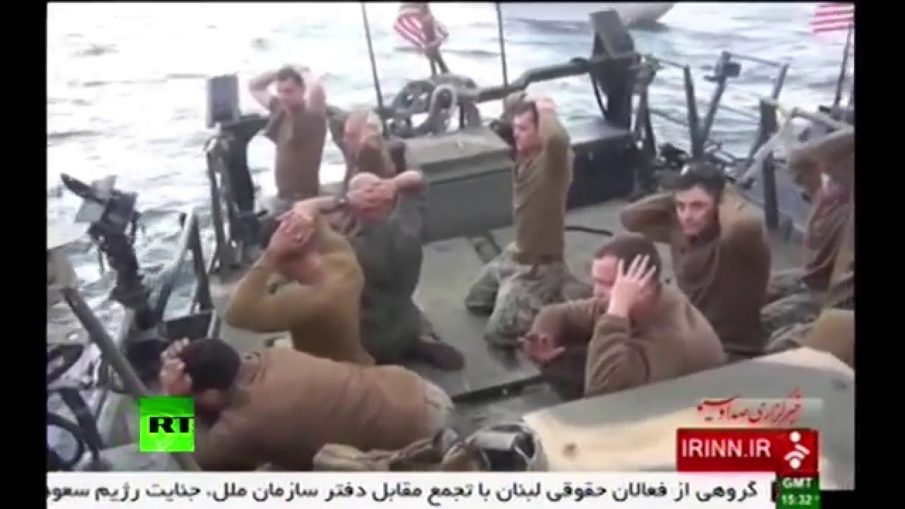The Code is a set of principles that are meant to guide American military members when they are faced with the horrible prospect of being taken prisoner. It is meant to uphold the dignity of those members, as well as the national honor and the honor of all American fighting men and women. It is how American military members preserve their dignity and honor under terrible conditions, and when faced with agonizing choices while in captivity.
Article II of the Code states that an American service member will never surrender of his or her own free will, nor will those in command ever surrender the members of their command while they still have the means to resist. Furthermore, if American service members are captured, they are to continue to resist “by all means available.”
This means not allowing the American flag to be lowered, and the Iranian flag to fly, on your vessel. It means not willingly giving up your phone and laptop passwords. It means not reading statements prepared by your captors, or wearing headscarves if you are female. American military members are expected to resist such measures, to the best of their ability, and if ultimately forced to do certain things — by physical force — they are expected to do them in the least willing manner possible.
Sadly, it does not appear that the crews of these two boats resisted at all. They gave their boats up willingly, while on their knees. They appeared on camera, reading prepared statements. They provided their electronic devices (and passwords) to the Iranians. One female wore a headscarf when told to do so by her captors. They also allowed the Iranian flag to fly on their boats, without putting up a fight.
This author has sympathy for the sailors who were put in this situation. God knows, no one wants to face such an ordeal. It would be frightening, intimidating, and unnerving, to say the least. That does not, however, excuse the complete lack of resistance exhibited in this case. Those crew members should have, at a minimum, refused to go to their knees on those boats, or to allow the lowering of the American flag. They should not have willingly provided their phone and laptop passwords, nor read prepared statements, nor put on a headscarf on camera.
This whole episode should leave a bad taste in the mouths of all Americans. The Navy was right to discipline those found guilty of these failures. It is also time for some more Code of Conduct training in the U.S. Navy.
Code of Conduct for Members of the United States Armed Forces
I. I am an American, fighting in the forces which guard my country and our way of life. I am prepared to give my life in their defense.
II. I will never surrender of my own free will. If in command, I will never surrender the members of my command while they still have the means to resist.
III. If I am captured I will continue to resist by all means available. I will make every effort to escape and aid others to escape. I will accept neither parole nor special favors from the enemy.
IV. If I become a prisoner of war, I will keep faith with my fellow prisoners. I will give no information or take part in any action which might be harmful to my comrades. If I am senior, I will take command. If not, I will obey the lawful orders of those appointed over me and will back them up in every way.
V. When questioned, should I become a prisoner of war, I am required to give name, rank, service number and date of birth. I will evade answering further questions to the utmost of my ability. I will make no oral or written statements disloyal to my country and its allies or harmful to their cause
VI. I will never forget that I am an American, fighting for freedom, responsible for my actions, and dedicated to the principles which made my country free. I will trust in my God and in the United States of America.










COMMENTS